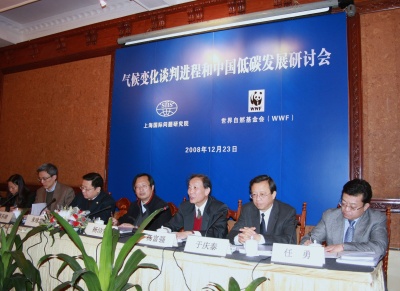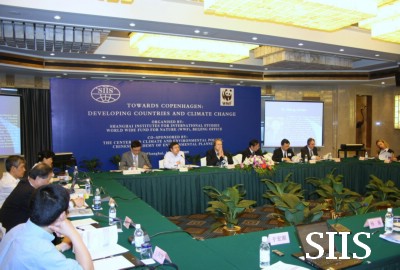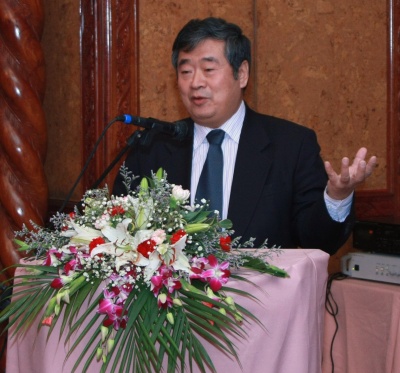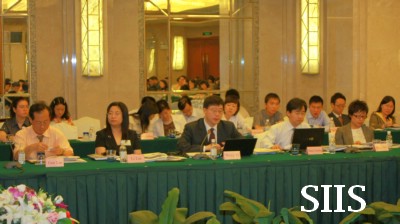Conference on Climate Change and Low Carbon Development: Mid-Term Assessment of Bali Roadmap





2016/09/10 read:707
In this global financial crisis time, global warming has added a new dimension to international and national security issues. From Rio Earth Summit to Bali Conference, a generation has nearly passed since the international community began to tackle with climate change. In the end of 2007, the Bali Roadmap signalled the gradual move among developed and developing countries for mandatory carbon emissions after 2012. As such, Poznań conference has presented the world with high priorities in the past two years.
As fast-growing carbon emissions, the origin of climate change, concentrate in the developing world, some western scholars and politicians might inevitably criticize China for counter-balancing global efforts in climate negotiation. However, China’s ambitious energy reform and strong support to Post-Kyoto regime building came as a shock to these people. As already discussed, the world will most likely benefit from the growth of developing countries, particularly China’s, if a workable low carbon model could be devised that truly manages the balance of energy consumption, economic development and climate change. A concerted transition to an economy that produces fewer carbon emissions is the road that China must choose, especially with financial and technical collaborations with developed world. Chinese have acknowledged that it is no longer enough for poor countries to only blame the rich countries for climate change.
The conference of Conference of Climate Change and Low Carbon Development has brought together more than 70 participants from policymakers, researchers from academia and think tanks, NGOs, as well as international organizations, and it was also be held in an informal and interactive setting to meet the satisfactions of mass media and policy makers on climate change.
The main topics in this conference includes Diplomatic Responses and Progress to Collective Action on Climate Change: from Bali to Poznan, Climate Change and Energy Security: Chinese Political Economy New Thoughts , and China Low carbon society building and Climate Change.
The conference participants shared the viewpoints on the following questions such as: The implications of global financial crisis on Bali roadmap, t he assessment of Poznań climate change negotiations, the prospects of G8 La Maddalena Summit and Copenhagen Conference, the dynamics of US Climate Diplomacy and its implications, China’s climate change strategy and international politics, China’s likely role in a future climate change regimes (post-Kyoto),China and mandatory emission reduction obligations, China’s international reputation on climate change, China’s efforts and achievements in low carbon development, domestic –International Linkages for China and global warming, Carbon Credit Market and technology transfer.
The main conference participants includes: H.E. Ambassador Yu Qingtai, China"s Special Representative for Climate Change; He Jiankun, Tsinghua University;Yang Jiemian, Professor and President at Shanghai Institutes for International Studies, China; Jiang Kejun, Director, Energy Research Institute, NDRC, China; Chen Dongxiao, Professor and Vice President at Shanghai Institutes for International Studies, China; Pan Jiahua, Research Centre for Sustainable Development, Chinese Academy of Social Sciences; Ren Yong, Senior Fellow and Deputy Director of Policy Research Center, Ministry of Environment Protection; Wang Jinnan, Executive Director of Chinese Academy for Environmental Planning; Yang Fuqiang, Director, Global Climate Solutions,World Wide Fund for Nature; Zhang Haibin, Director of International Orgnizations, Peking University; Zhu Yonglei, Deputy Director of Bureau of Shanghai World Expo Coordination.





